I ski in the US every winter. Here's how I pick the right ski resort for my budget, plus 13 tips that will help save money.
Sarah Kuta

- Skiing is a fun winter sport, but it can also be expensive with buying equipment and lift passes.
- Over the years, I've discovered a few tricks that make taking ski trips easier on my wallet.
I learned how to ski as a kid and never looked back. But living in Colorado, I've also come to realize just how expensive this winter activity can be.
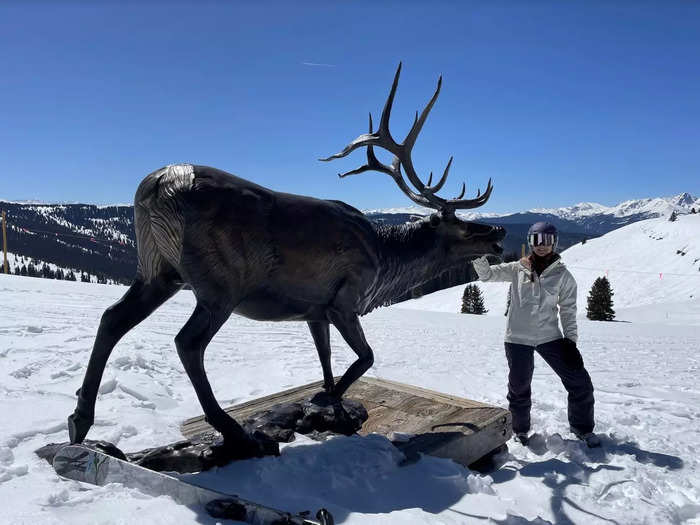
Between day passes, equipment rentals or purchases, accommodations, and dining, skiing can be a pricey excursion.
But in my experience as a skier of more than 15 years, I've found ways to plan a ski vacation on a budget, and it just takes a little research and strategizing.
If, like me, you can't wait to glide through snow-covered evergreens and aspens on a freshly groomed ski run, and want to do so affordably, here are my recommendations for planning a budget-conscious ski trip.
I love to visit smaller, independent resorts for savings.
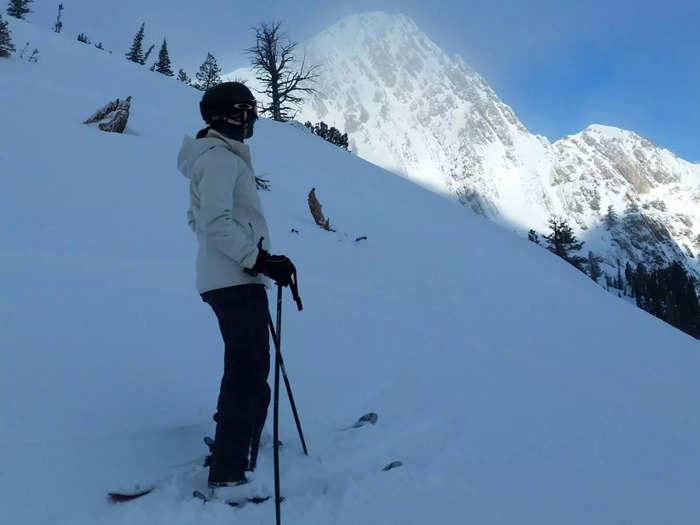
Bigger isn't always better when it comes to ski resorts, in my opinion. While smaller, independently-owned ski resorts may not have quite as much terrain or as many amenities as their larger, flashier counterparts, in my experience, they're typically significantly cheaper and a good choice for affordable skiing.
I've found that the smaller resorts I've been to still offer the full skiing experience, and are often quite charming because they've retained their own unique local character and vibe. Some of my favorites in Colorado are Sunlight Mountain Resort, which offers uncrowded access to 72 trails spread across 730 acres near Glenwood Springs, and Powderhorn Mountain Resort, a laid-back ski area on the Western Slope not far from Palisade. I also like Beaver Mountain in Utah, which has been family-owned and operated since 1939.
If you want to visit several independent resorts in a season, I recommend buying the aptly named Indy Pass, which gives you affordable access for up to two days at more than 120 different independent resorts across the United States, Canada, and Japan. At $329 or $349, depending on how early you buy it, the Indy Pass is more budget-friendly than other passes, like the Ikon and Epic, which typically start at around $600.
I look for ski towns with lots of free activities for time off the slopes.
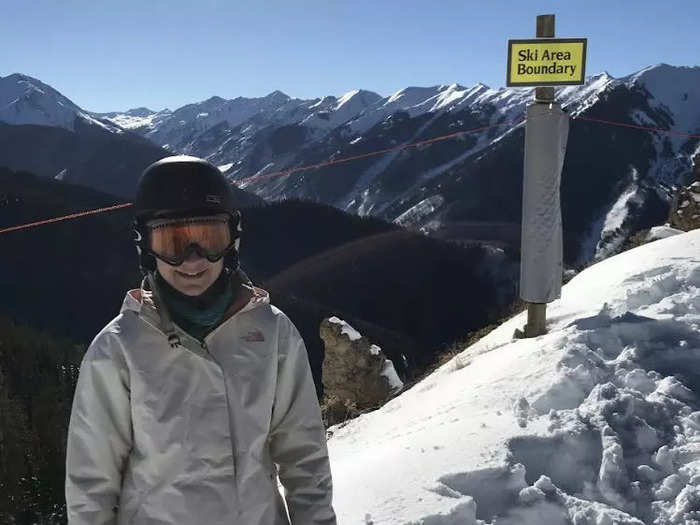
Even an experienced skier like me can only ski so many hours in a day, which means I'm usually looking for other ways to fill my time off the slopes. If you're ski vacationing on a budget, I recommend traveling to regions with a variety of other free or cheap activities to fill off-mountain downtime.
With its many high-profile visitors, upscale shops and restaurants, and pricey real estate, Aspen, Colorado, has earned a reputation for being ritzy and expensive — and rightfully so. But while you can definitely spend a lot of money vacationing in Aspen, I think it's also a great destination to visit on a budget because I've discovered it has so many free things to do.
Whenever I venture to the Roaring Fork Valley in Aspen to ski, there are a handful of free activities I always try to do. I like to visit the Aspen Art Museum, wander the artsy grounds of the Aspen Institute, check out the Holden/Marolt Mining & Ranching Museum, which is free for car-free visitors, and marvel at the outdoor sculpture garden at Anderson Ranch Arts Center in Snowmass. I also bring my cross-country skis so I can take advantage of the 60 miles of free Nordic ski and snowshoe trails throughout Aspen, Snowmass, and Basalt, which are all within a 30-minute drive of each other, and free to access.
I always buy a season pass because it's more cost-effective for how much I ski.
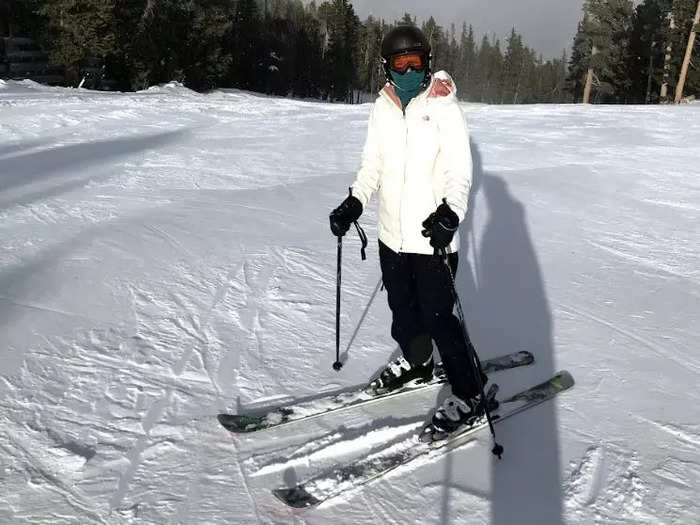
If you hope to ski multiple days throughout the winter, then in my experience a season pass is usually the most cost-effective way to go.
If you plan on sticking to the same resort, I'd look into single-mountain season passes. Or, if you hope to mix it up and travel around to different areas, consider a multi-mountain pass, like the Ikon, Epic or Indy passes, which have both local and worldwide pass options for hundreds of mountains.
These passes allow you to visit multiple resorts without buying individual, daily lift tickets. There are different levels of passes that range from several hundred dollars to more than $1,000. Some also have blackout dates or limit the number of days you can go, like the Epic 7-Day pass or the Ikon 4-day session pass.
If you know how many days you plan to ski, you can easily do the math to figure out whether buying a season pass is "worth it," aka cheaper than buying multiple, one-day lift tickets. I've bought an Ikon pass for the last five winters and, at the end of every season, I always love to calculate my per-day rate. In 2019, for example, I paid $699 for an Ikon pass and skied roughly 20 days, which brought the per-day rate for my pass down to just $35. That's much cheaper than the cost of a single-day lift ticket, which at many ski resorts can run between $100 and $200.
On top of the lift ticket savings, I've found that with my Ikon season pass, I can also get 10% off purchases at some on-mountain shops and restaurants. I also know that some season passes, like the Epic and Ikon passes, allow you to buy discounted lift tickets for friends, which can save you between 20% and 40% compared to regular day tickets. I haven't done this yet, but I think it's a smart move for skiing with a group.
I try to buy my season pass as early as possible for the best prices and always check for potential discounts.
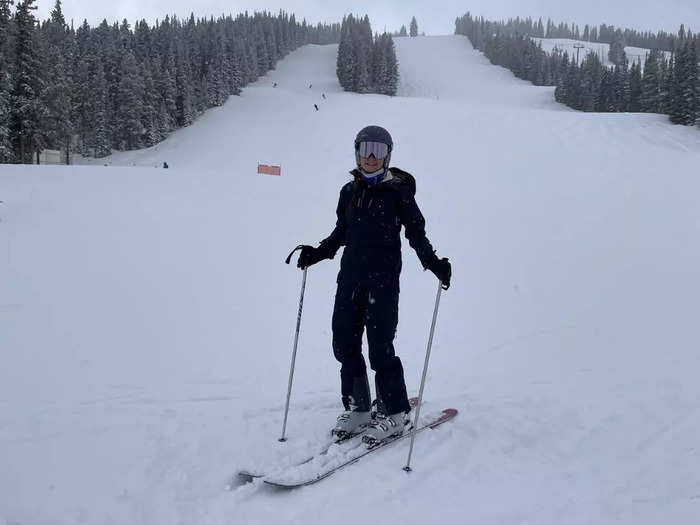
Though orchestrating a ski vacation six to 10 months in advance can be daunting, it pays to plan ahead because, in my experience, buying a season pass as far in advance as possible gets the lowest price. I've noticed that passes are typically cheapest in the spring, then become progressively more expensive throughout the summer and fall as ski season approaches.
When I bought my Ikon base pass in April 2022, for example, I paid $719. But as of early December, you'd need to spend $919 for the same pass. Because of this, I usually buy mine as early as possible in the spring for the upcoming season. Some passes, like the Ikon pass, also offer a renewal discount for returning customers, which has helped me save a little bit of money, usually around $50, each year.
Many season passes also offer discounts to certain groups, such as college students, nurses, and active-duty and retired military personnel, with up to 28% savings.
If you don't want to commit to a season pass, I've also found that many resorts offer discounts for guests who buy lift tickets in advance online, versus waiting to buy them on ski day. Copper Mountain in Colorado, for instance, offers 48% savings to people who buy lift tickets in advance.
If you're skiing as a family, look for resorts that offer free lift tickets or free days for families or young kids.
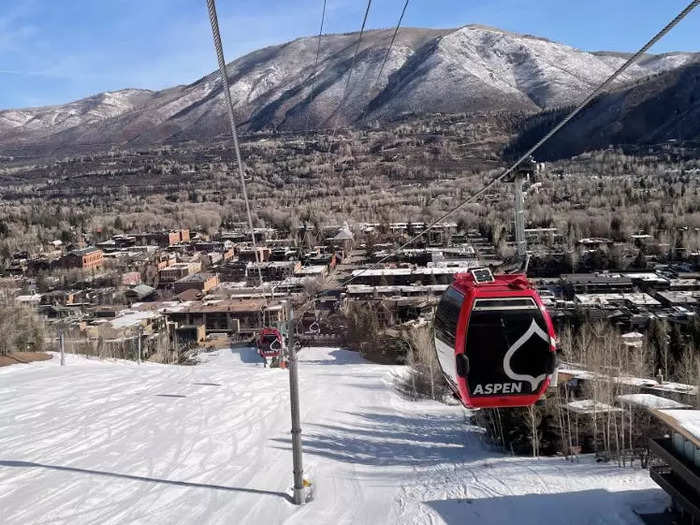
Many resorts I've been to offer free lift tickets for children under certain ages, like under 5 years old, so do a little research if you're planning to bring the whole family to the hill.
My friends with kiddos love to visit Granby Ranch in Colorado, where kids 5 and under ski for free with the purchase of an adult lift ticket. One of my favorite California ski resorts is Mammoth Mountain, where kids 4 and under and seniors 80 and older ski for free.
Though it's not very common in my experience, some resorts, like Howelsen Hill Ski Area in Steamboat Springs, Colorado, even offer free days for the whole family. At Howelsen, Sundays are free for everyone all season long.
I also recommend families check out broader initiatives that give elementary-age kids free or discounted passes.
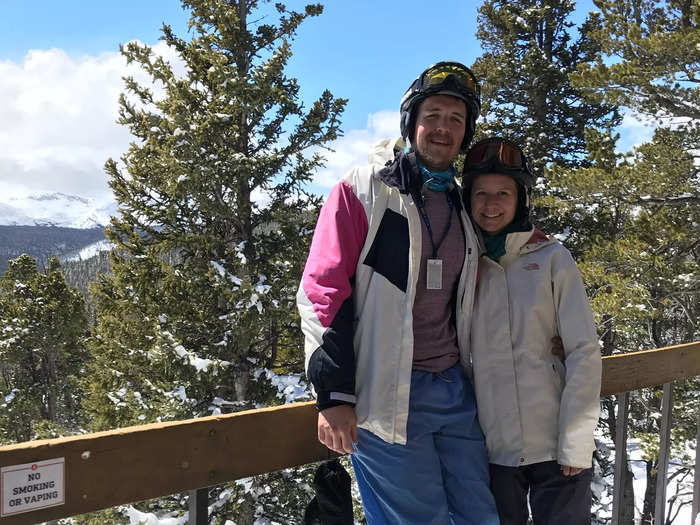
Several states, regions, and resort groups offer free or discounted season passes to children in certain grades — and, most of the time, you don't have to live in that state to take advantage.
For example, Ski Utah offers all fourth, fifth, and sixth graders, regardless of whether they live in or out of state, a passport that's good for list passes for three days each at 15 ski resorts across Utah for $49 or $55 after December 1.
Similarly, kids under the age of 12 can get a free season pass that's good for unlimited lift access all season long at nine Power Pass mountains located in Colorado, Arizona, New Mexico, Utah, Oregon, and Texas.
Colorado Ski Country USA offers all third, fourth, fifth, and sixth graders who live anywhere in the world a $59 passport that gets them four days each at 20 participating ski areas in the Centennial State. And Ski Idaho gives all fifth and sixth graders an $18 passport that's good for either two or three free days at each participating resort, such as Schweitzer, Tamarack, and Sun Valley.
Seek out resorts that offer early and late-season discounts and skip busy holidays.
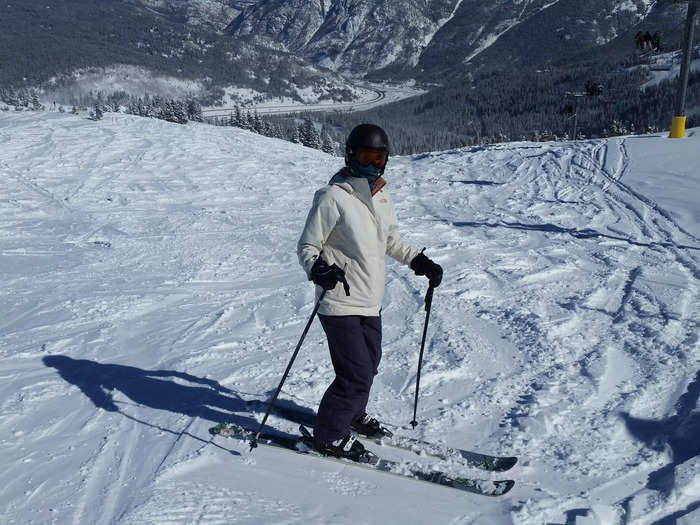
If you decide not to buy a season pass and instead just go with day passes, I advise trying to plan your ski vacation for early or late in the season, as many resorts offer cheaper lift tickets during these periods. Early typically means November and December, though not around the holidays as prices go up due to demand from vacationers, while late season usually means the end of March and into April.
At Loveland Ski Area in Colorado, for example, early-season lift tickets are $99 from the resort's opening day until Dec. 9. The price goes up to $119 during the regular season, which at Loveland this year runs from December 10 to April 9, 2023.
Similarly, I always try to book my ski trips for mid-week and avoid weekends for the best lodging rates and the smallest crowds. I also recommend avoiding the holidays at all costs. When kids are on school breaks, such as the week between Christmas and New Year's or on President's Day, the resorts I've been to are typically jam-packed, and prices on everything from hotels to lift tickets skyrocket accordingly, so I try to avoid these dates.
Go skiing in the afternoons or at night.
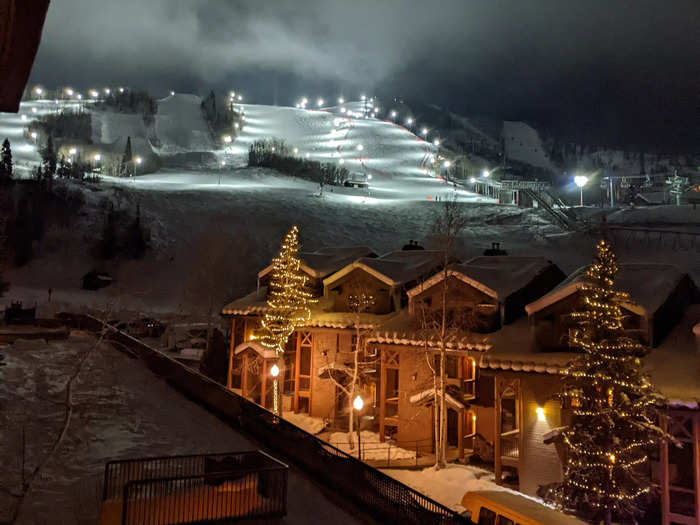
If you know your crew won't have the stamina to ski for a full day or you've just got other plans, I recommend searching out half-day lift tickets. Schweitzer in Idaho, for instance, offers a deal with its afternoon lift tickets, which let you ski from 12:30 p.m. until the lifts close on certain days. Their half-day tickets cost $45, while the full day costs $110. Not all resorts have half-day tickets, so it's a good offering to research ahead of time if saving money is a priority.
On a related note, night skiing tickets are often much cheaper, too, I find that skiing under the stars is downright magical. At Schweitzer, it costs only $20 to go twilight skiing from 3 to 7 p.m. on Fridays and Saturdays from January through March, as well as on select other days throughout the season.
Choose accommodations that are farther from the slopes for lower prices.
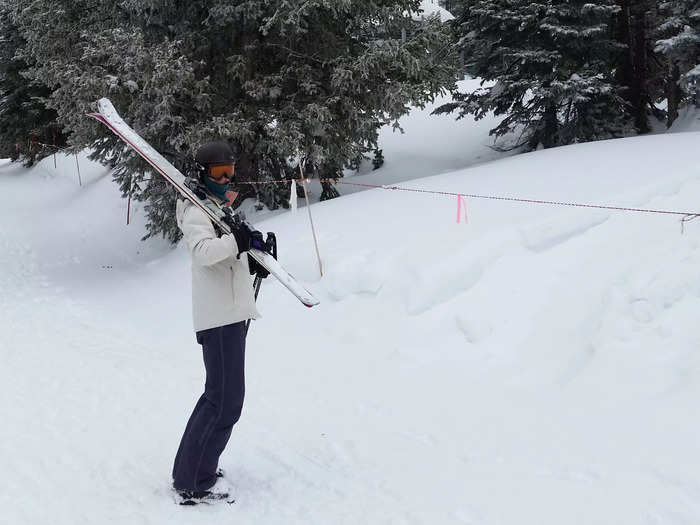
I love the convenience of staying in a ski-in/ski-out hotel or vacation rental, but these are by far the priciest options when it comes to lodging.
In my experience, you'll find more savings if you're willing to stay a little farther away from the ski resort, or even in a neighboring town. While spending the weekend skiing at Winter Park, I've saved money by staying in Granby, which is a few towns away and about a 30-minute drive from the slopes.
Skip the rental car and take public transit.
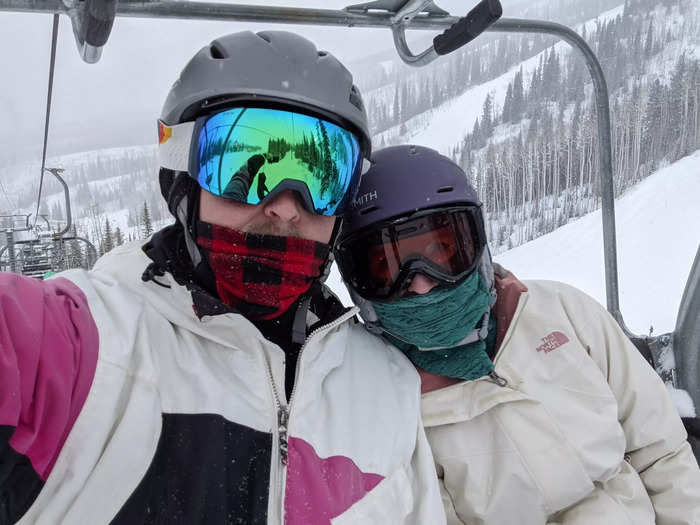
Since they're built on mountains, many ski towns I've been to across the country tend to be cramped for space, including parking. As such, many have robust public transit systems designed to shuttle visitors and residents wherever they need to go, including the slopes.
I think this is a great benefit to skiers, as it means we can skip the costly rental car and parking fees while also making a more environmentally friendly choice with mass transit. I've also found that many hotels near ski areas offer free shuttles to and from the mountains throughout the day, too.
Whenever I visit Aspen, I always try to ride Roaring Fork Transportation Authority (RFTA) buses whenever possible. Many of the routes offered by this regional public transit system are completely free, and I've found it to be super easy to hop on and hop off at bus stops throughout the valley, including at the four ski resorts in the area.
And last winter, I flew to Mammoth Mountain in California and decided not to rent a car once I arrived. I went all over Mammoth Lakes, without a hitch, riding on free winter Eastern Sierra Transit Authority buses and trolleys.
Stay at a hotel with free breakfast or book lodgings with a kitchen.
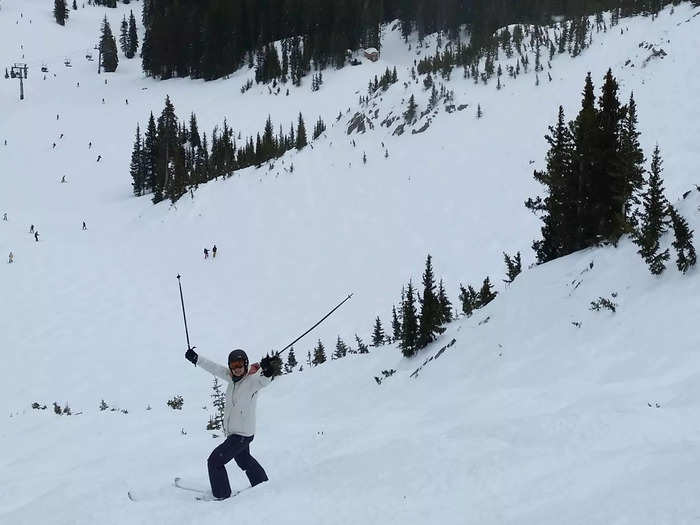
Though many ski hotels charge for breakfast, in my experience, you can still find a few offering a free morning buffet. My favorites are the Limelight Hotels in Colorado and Idaho, which have a seriously awesome spread of eggs, bacon, chorizo, sausage, French toast, frittatas, pancakes, pastries, yogurt, oatmeal, biscuits and gravy, and more.
Another way I recommend saving on food costs, especially if you're vacationing with a big group of friends and family, is to rent a vacation home or condo with a kitchen. Even at pricier mountain town grocery store prices, in my experience, cooking at home is far cheaper than dining out for every meal. The same goes for apres-ski drinks, so it's also cheaper to buy ingredients to make drinks at your rental.
Every year, I like to get a big group together and find a large vacation rental near Steamboat Ski Resort in Steamboat Springs, Colorado. Then, everyone chips in and brings ingredients or dishes that are easy to prepare and comforting after a cold day outdoors, like lasagna and chili.
Stuff your pockets with snacks to save on buying food at the resorts.
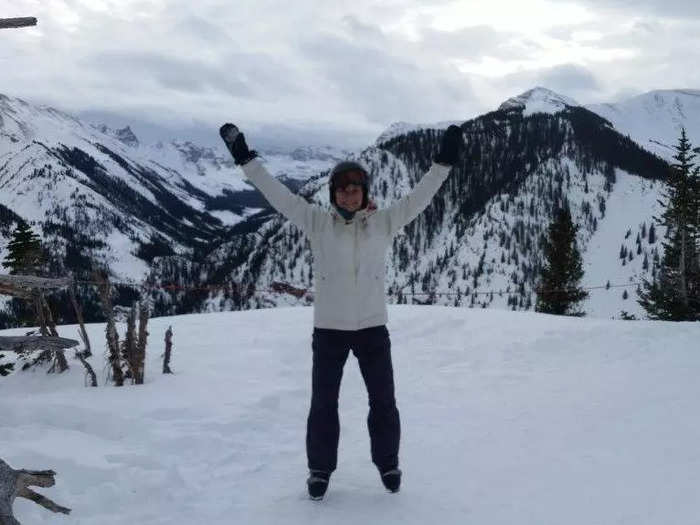
On-mountain food and drinks can be super pricey, in my experience, with entrees typically in the $20 to $30 range. Instead of spending money at ski area restaurants and bars, I typically fill the pockets of my ski coat and pants with snacks to satisfy my appetite throughout the day.
Some of my favorite items to bring are foil-wrapped breakfast sandwiches or toasted peanut butter and jelly sandwiches, trail mix, nuts, granola bars, string cheese, and jerky, which I typically munch on while riding a chair lift. These items, many of which I buy in bulk at Sam's Club, cost just a few dollars per day and save me from splurging on $20 lunches.
Buy used gear instead of splurging for new equipment.
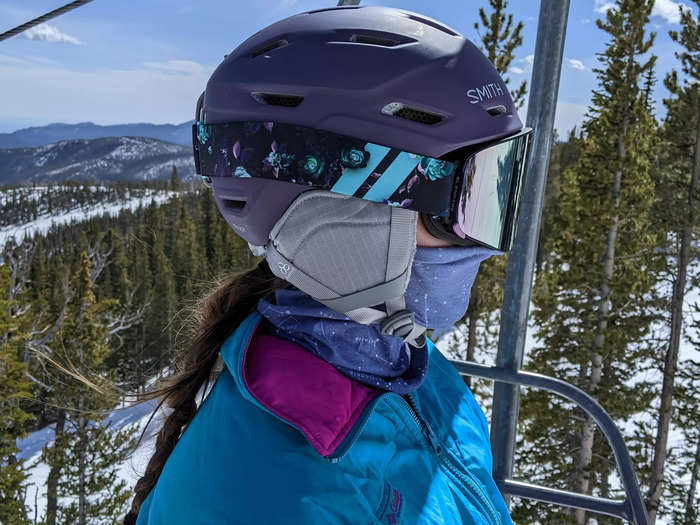
New ski gear can cost a small fortune — a pair of brand new skis from popular brands like Salomon and Rossignol can range from $400 to more than $1,000. Whenever I'm visiting a mountain town, I always make time to scope out local thrift shops, consignment stores, and used outdoor sports retailers for cheap pre-owned gear.
Over the years, I've had some great finds — boots, skis, poles, coats, pants, and hats — which have helped me keep costs down. Nearly all of my gear is second-hand, but I find it performs just fine on the mountain and, to me, it doesn't look outdated or old.
A few seasons ago, I paid $300 for a pair of used skis when a similar, new pair would've cost me closer to $700 or $800. I like that I've saved money over the years while also giving equipment a second life and keeping it out of the landfill.
If you'd rather rent all the gear and you expect to go skiing multiple times this year, I recommend doing a season-long rental, instead of paying per day. I haven't done this myself, but many of my friends do it regularly.
At the beginning of the season, they rent a set of skis, boots, and poles from a store like Crystal Ski Shop in Boulder, Colorado, then ski with the gear wherever they want all winter. At the end of the season, they return them to the shop.
The savings can add up quickly, depending on how often you plan to ski: Crystal Ski Shop charges $175 to $265 for an adult season-long rental, for example, compared to $28 to $45 per day for daily rentals. I know some ski resorts offer season-long rentals, too, including Eldora Mountain Resort.
Read more from Insider's guide to ski season:
→ 12 beginner mistakes new skiers make and how to avoid them, according to a lifelong skier→ I've been skiing for 20 years. Here are 9 items I always pack when I go on ski trips.→ I'm an advanced skier who's shredded mountains all over the Northeast. These 9 resorts are my favorites in the region for all budgets and ability levels.→ I've been skiing across the Western US for over a decade. I think these 9 ski resorts are the best in the region.→ I lived in Park City, Utah, for over 12 years. Here are 8 of my favorite things to do and see in town, both on and off the slopes.Popular Right Now
Popular Keywords
Advertisement